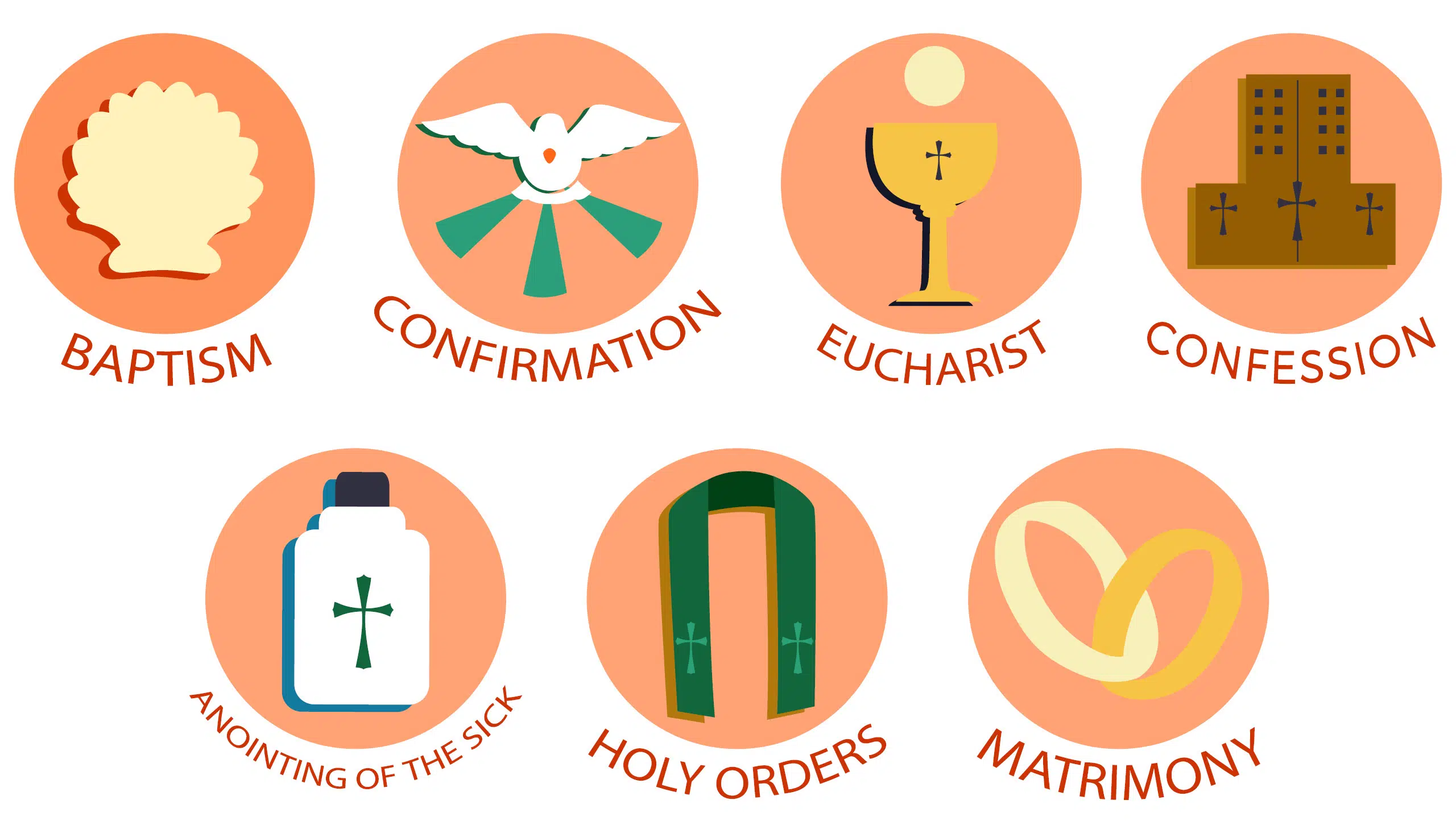Introduction
In Christianity, sacraments are revered as sacred events that represent momentous occasions of spiritual significance and heavenly mercy. These customs, which are observed by different denominations, have a strong foundation in the Christian tradition. The two primary sacraments of Christianity—Baptism and Eucharist—as well as some other noteworthy rituals that Christians around the world observe, will be discussed in this article.
see also: The Bible
What are Sacraments in Christianity?
The Christian sacraments are holy rites or ceremonies created by apostolic authority or by Christ himself, through which believers encounter God’s love and presence in their lives. They are regarded as outward manifestations of intangible spiritual realities and are said to bind Christians to God and their fellow believers.
1. Baptism: The Sacrament of Initiation
The Significance of Baptism
One of Christianity’s most important sacraments is baptism. It stands for initiation into the Christian faith, purification from sin, and spiritual rebirth. The act of being poured into or submerged under water during a baptism symbolizes the washing away of sin and the beginning of a new life in Christ.
Infant Baptism vs. Believer’s Baptism
Many Christian traditions approach baptism in different ways. Infants are baptized in some faiths shortly after birth as a sign of the parents’ commitment to bringing up the child in the Christian faith. Contrarily, believer’s baptism, sometimes referred to as adult baptism, is carried out when a person is old enough to comprehend and declare their beliefs.
2. Eucharist: The Sacrament of Communion
The Significance of the Eucharist
The Lord’s Supper, sometimes referred to as Holy Communion, or the Eucharist, honors the Last Supper that Jesus had with his apostles. In this sacrament, believers consume bread and wine (or grape juice), which are viewed as representing the physical flesh and blood of Christ and the oneness of believers with Him.
Transubstantiation vs. Consubstantiation vs. Memorialism
Various Christian sects have different theological perspectives on the Eucharist. Christians who practice transubstantiation—in which the bread and wine are said to change into the genuine body and blood of Christ—include Roman Catholics and Orthodox Christians. Consubstantiation, which Lutherans adhere to, holds that Christ and the elements are both present. While others practice memorialism, viewing the Eucharist as a symbolic act of memory, some Protestant churches do the opposite.
Other Sacramental Rites in Christianity
3. Confirmation
People, typically teenagers or young adults, publicly profess their faith and commitment to Christianity at the ceremony of confirmation. It is frequently carried out by a bishop or other designated minister laying hands on the person and praying.
4. Reconciliation (Confession or Penance)
In the sacrament of reconciliation, believers confess their sins to a priest or minister in order to receive forgiveness and absolution. In this sacrament, God’s kindness and the necessity of repentance are emphasized.
5. Marriage (Matrimony)
In many Christian traditions, marriage is seen as a sacrament, signifying the joining of two people in the presence of God and their religious community. It represents a mutually supportive lifelong commitment between the partners.
6. Holy Orders (Ordination)
In order to serve the Church and her members, people must receive Holy Orders, a sacrament that enables them to be ordained as clergy members such as deacons, priests, or bishops.
7. Anointing of the Sick (Last Rites)
This sacrament, usually referred to as Last Rites or Extreme Unction, is carried out for the sick and the terminally ill, offering prayers for recovery, pardon, and spiritual solace.
The Role of Sacraments in Christian Life
Sacraments play a vital role in the spiritual journey of a Christian believer:
1. Connecting with God
Sacraments give Christians a direct encounter with God’s love and presence, strengthening their faith and spiritual connection.
2. Communal Bond
The participation of the faith community in sacraments frequently strengthens the sense of solidarity and unity among believers.
3. Spiritual Growth
Each sacrament bestows particular spiritual blessings that support people in their personal development and change.
Conclusion
Sacraments are extremely important in Christianity because they act as tangible representations of God’s mercy and love for his followers. The two main sacraments, baptism and the Eucharist, stand for spiritual initiation and union with Christ. Additional sacramental ceremonies, like Confirmation, Reconciliation, Marriage, Holy Orders, and the Anointing of the Sick, allow Christians chances to strengthen their faith, ask for forgiveness, and receive divine graces. Christians who participate in these holy rites are strengthened in their spiritual journey on the Christian path as they are reminded of the profound secrets of their religion and the limitless love of God.
